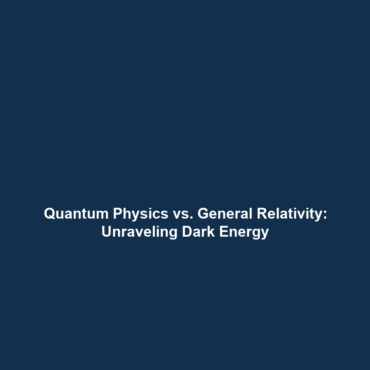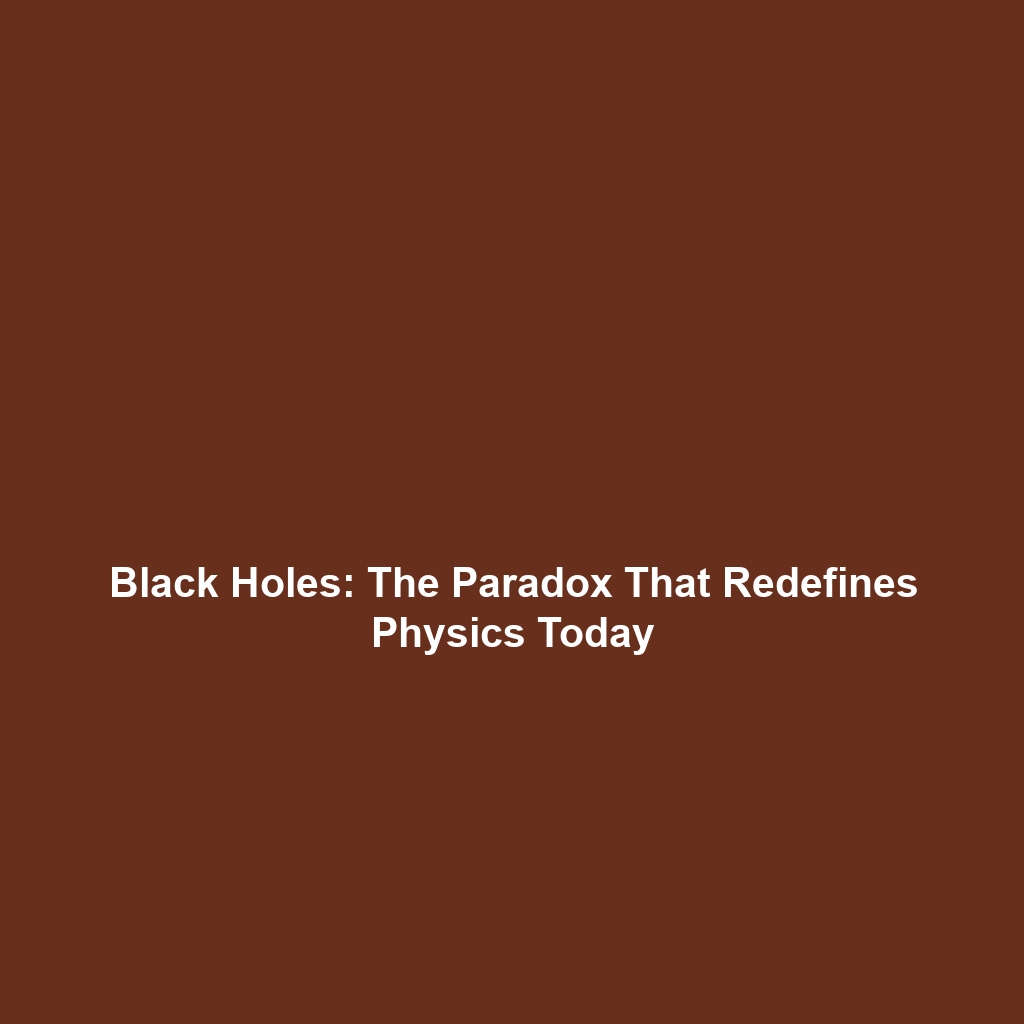How Quantum Physics and General Relativity Conflict Over Dark Energy
Introduction
At the forefront of modern astrophysics, the conflict between Quantum Physics and General Relativity in the realm of Dark Energy represents a critical challenge in understanding the universe. Dark Energy, an enigmatic force believed to drive the universe’s accelerated expansion, does not seamlessly fit within any established theoretical framework. This article delves into the complexities arising from the juxtaposition of these two fundamental theories, offering insights into their implications for Dark Matter and Dark Energy. Understanding this conflict is not just academic; it has profound implications for the future of cosmology and our comprehension of the universe.
Key Concepts
Quantum Physics and Dark Energy
Quantum Physics, the branch of science dealing with the behavior of matter and light on atomic and subatomic levels, offers unique insights into the nature of dark energy. It introduces phenomena such as vacuum energy, which suggests that empty space possesses energy that could drive cosmic acceleration.
General Relativity’s Perspective
On the other hand, General Relativity, Einstein’s theory of gravitation, describes how mass and energy warp space-time, thus influencing gravitational attraction. When applied to dark energy, it leads to interpretations that may conflict with quantum explanations. This disparity creates significant theoretical and empirical challenges in reconciling these two theories.
Applications and Real-World Uses
The ongoing exploration of how quantum physics and general relativity conflict over dark energy has practical implications across various scientific domains:
- Cosmological Models: Researchers use insights from both fields to develop models predicting the universe’s fate.
- Astrophysical Observations: Understanding dark energy helps improve observational techniques for distant astronomical entities.
- Technology Innovations: Techniques derived from quantum mechanics, such as quantum computing, hold potential applications in data analysis of cosmic phenomena.
These practical applications enhance our grasp of Dark Matter and Dark Energy, demonstrating the interconnectedness of scientific theories and their real-world relevance.
Current Challenges
Despite the advancements made, several challenges persist regarding the study of quantum physics and general relativity conflicts:
- Theoretical Inconsistency: The lack of a unified theory integrating both quantum physics and general relativity poses significant obstacles.
- Experimental Difficulties: Testing theories at the intersection of quantum mechanics and cosmic scales remains profoundly difficult.
- Defining Dark Energy: The true nature of dark energy continues to elude scientists, complicating efforts to reconcile competing theories.
Future Research and Innovations
Looking ahead, the exploration of how quantum physics conflicts with general relativity over dark energy is expected to yield groundbreaking discoveries:
- String Theory: Ongoing research may lead to a viable theory that reconciles quantum mechanics and gravity.
- Advanced Observatories: New telescopes and observational techniques could improve data on cosmic phenomena tied to dark energy.
- Quantum Gravity Theories: Innovative frameworks for quantizing gravity may offer fresh perspectives on dark energy implications.
Conclusion
In summary, the conflict between quantum physics and general relativity over dark energy highlights the intricate challenges faced by physicists in understanding dark matter and dark energy. As ongoing research continues to unravel these mysteries, further breakthroughs could reshape our cosmic comprehension. To stay updated on this exciting field, explore more about future advancements in cosmology and the cutting-edge developments in quantum physics.


